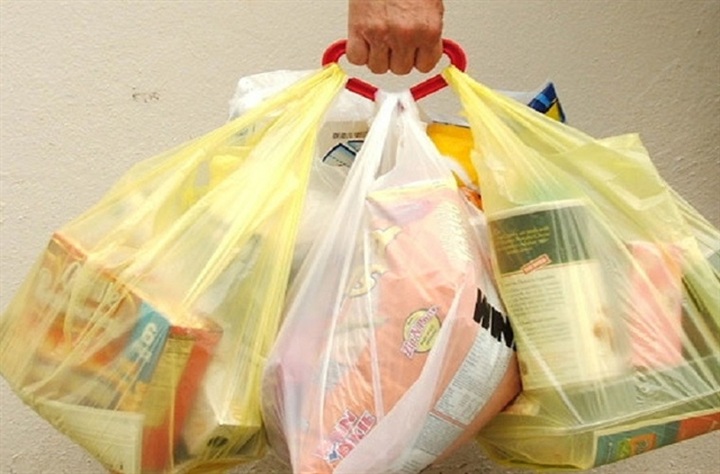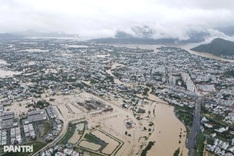
Hanoi plans not to use nylon bags in supermarkets and traditional markets by the year 2020. - kienthuc.net.vn photo
This is the call from the municipal Industry and Commerce Department. The city is appealing to businesses to join the campaign.
On June 28, more than 200 companies in the capital signed commitments to cut plastic waste in industrial production and consumption distribution.
The signing took place at a conference on Actions Against Plastic Waste in Industry Production and Consumption organised by the department.
The plastic waste discharged from production and consumption activities was huge and most of the garbage was hard to decompose, said Trần Thị Phương Lan, the department’s vice director.
Statistics show that in Hanoi alone there are about 100 plastic production businesses along with 24 shopping malls, 140 supermarkets, 454 traditional markets and thousands of shops trading food and fruit many using nylon bags and other plastics.
Although there have been several studies and warnings on the health and environment risks, nylon bags and plastic products remain very popular because of convenience, Lan said.
“Every day, the city has been discharging between 5,500 and 6,000 tonnes of domestic waste, of which plastic accounted for about 10 per cent, or about 60 tonnes,” she said.
According to the vice director, production was very cheap and the government has not offered any assistance such as loans or tax priorities to businesses who wanted to shift to environment-friendly alternatives.
The city had introduced several measures to reduce production and substitutes with greener products.
It has asked plastic production and distribution businesses to set up plans to produce self-decomposing products by the year 2020.
“The city set goals of no use of hard-decomposed nylon bags in all supermarkets and 50 per cent decrease of the use in traditional markets by the end of year 2020,” said Lan.
The city aimed to gradually reduce plastic materials and classify all waste discharged by factories while also stop to produce disposable products and hard-decomposed nylon bags by the year 2025.
“Understanding the impacts of plastic waste on the environment, a number of plastic manufacturers and distributors in the city have shifted to make and use biodegradable bags and natural materials,” said Lan.
However, the change would create difficulties for the manufacturers and distributors due to high production costs.
Additionally, many enterprises felt worried the environmental-friendly products would be hard to sell when the use of the products was not compulsory, Lan added.




















